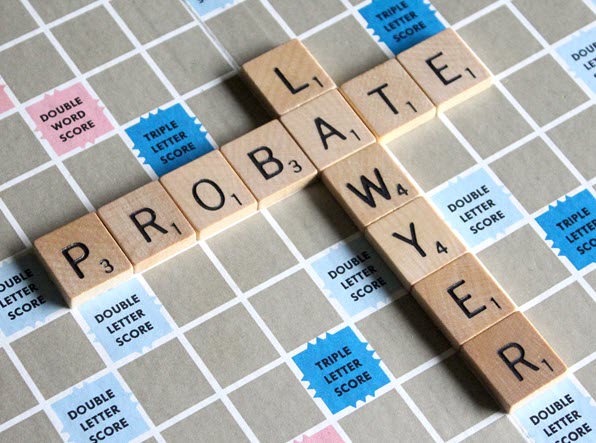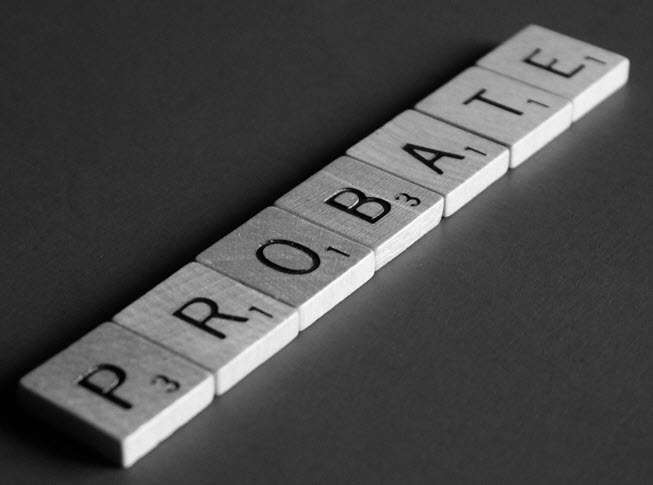Why You May Still Have to Open a Legal Probate Proceeding
Category: Common Problems, Estate Planning, Probate
Probate is the legal process for recognizing the validity of a person’s will after their death and appointing the nominated decision maker. This person, also known as an executor or personal representative, administers the deceased person’s estate and ensures that their money and property are transferred to the beneficiaries specified in their will. If someone dies without a will, probate is the process by which a court declares who that person’s heirs are and appoints an administrator who will distribute the person’s money and property as required by state law. Because the probate process can sometimes be expensive and lengthy, and the details of the deceased person’s estate may become part of public court records, many people create an estate plan designed to avoid probate
Issues to Consider If You Want to Leave Your Retirement Account to a Minor Child
Category: Beneficiaries, Common Problems, Estate Planning
Your retirement account may be one of the most valuable things you own. Many people consider naming their children as the beneficiaries of these accounts because they think it is a way of easily transferring their wealth if something happens to them. However, there are some factors that make this type of transfer more complicated than you may think, especially if your child is a minor. Can a Minor Be Named Individually as a Beneficiary? Yes, you can name your minor child as the beneficiary of your retirement account or as the contingent beneficiary who would receive it if the primary beneficiary you have named on the account dies before you pass away. However, if your child is a minor when you die and they
A deed is a legal document used to transfer real property ownership rights from one person or entity (the grantor) to another (the grantee). In many cases, this transfer occurs due to the property being sold, with the seller transferring the property to the buyer. Typically, a deed is recorded with the local county recorder of deeds. Recording the deed gives the public notice that the grantee now legally owns the property. Not recording a deed can cause problems for the grantee. They may be unable to obtain a mortgage, insure the property, or sell it. Even more problematic, an unrecorded deed may make it possible for the grantor to sell the property to a buyer and subsequently sell the same property to a different
Important Milestones You Can Incorporate in Your Estate Plan
Category: Beneficiaries, Estate Planning, Peace of Mind
Life is full of contingencies. While some outcomes are relatively certain, other events are more difficult to predict. This uncertainty can create estate planning challenges. Because life changes quickly and sometimes unexpectedly, your estate plan needs to be flexible. You can make changes to your estate plan when you are still alive, but when you pass away, your plan is effectively—but not entirely—set in stone. Incorporating milestones into your estate plan is one way to hedge against the unpredictable future. By creating incentives for particular events, you can continue to exercise your values and provide for your loved ones beyond your lifetime. Clarifying Your Wishes with If-Then Statements If-then statements allow outcomes to be determined with conditions. They are found in deductive logic, computer programming,
Don’t Let Your Cryptocurrency Give You and Your Loved Ones Nightmares
Category: Common Problems, Crypto, Digital Legacy, Estate Planning, FAQ
Although cryptocurrency may be one of the latest investment strategies with great potential, for some individuals and their loved ones, investing in cryptocurrency has not gone as planned. The following stories are each a little different, but they all underline one simple warning: if you own cryptocurrency, you need a plan. Impact of Volatility on Estate Administration Matthew Mellon, an investor and businessperson who was a member of two prominent families, the Mellons and the Drexels, died in April 2018.[1] At the time of his death, his estate was estimated to be worth approximately $200 million. Much of his wealth came from a $2 million investment in the cryptocurrency XRP, managed by the company Ripple. Mellon died with an outdated will that did not mention
Red Flags When Hiring a Professional To Be Your Trustee
Category: Common Problems, FAQ, Peace of Mind, Trusts
When you form a trust as part of your estate plan, one of the most important decisions you will make is who will oversee the trust’s management when you are no longer able to manage it (also known as your successor trustee). Because a trustee’s work may be time-consuming, complicated, and risk liability, many people who create a trust consider naming a professional fiduciary as their trustee. Keep in mind that if you ask your estate planning attorney to serve as your successor trustee, you should ask for a separate engagement letter from the one you sign engaging them to create your estate plan. When looking to hire a professional to serve as your trustee, the following are several red flags you should keep in
Important Issues to Address Before You Leave on Vacation
Category: Common Problems, Estate Planning, FAQ, Peace of Mind
Getting ready to embark on your next great adventure? Before you zip up the last suitcase, here are five issues you need to address to protect yourself and your loved ones. Do you have a foundational estate plan? Has it been reviewed? An estate plan is a set of instructions memorialized in legal documents that explains to your trusted decision makers and loved ones your wishes about your care, the care of any dependents, and how your money and property should be handled. Last will and testament Depending on your unique situation and needs, you may have a last will and testament (also known as a will) as the foundation of your estate plan. This document allows you to name someone to wind up your
Is a Defect a Good Thing? Intentionally Defective Grantor Trusts in Estate Planning
Category: Asset Protection Trusts, Estate Planning, Gifts, Trusts
The notion that your estate plan contains a defect would not normally be welcomed as good news. But despite the moniker, an intentionally defective grantor trust (IDGT) can be an advantageous tool for minimizing estate taxes and maximizing the money and property that are passed on to a spouse, descendants, or other beneficiaries. The defect in this case refers to trust provisions that make the grantor (the person creating the trust)—not the trust—the trust owner and therefore liable for trust income taxes. By not having annual income taxes come directly out of the trust’s money and property, more value remains for beneficiaries. Further, the appreciation of accounts and property is excluded from the trust owner’s taxable estate. How an Intentionally Defective Grantor Trust Works Typically
Among the superheroes, Batman is unique because he has no superpowers. Although he is trained in the martial arts and possesses a range of high-tech gadgetry that allows him to fight crime, Batman is entirely human. He does not have genetic mutations, X-ray vision, overpowering physical strength, flying ability, genius-level intellect, or any other god-like powers. But Bruce Wayne does possess something that is key to his moonlighting as Batman: money. As the heir to an enormous fortune, Wayne is one of Gotham’s wealthiest citizens. He is also a major philanthropist who donates money to various causes. While his philanthropy is overshadowed by his masked vigilantism, neither would be possible without the money left to him by his parents. Carrying on the family legacy means
Legal Perils of Gifts and Joint Ownership between Unmarried Couples
Category: Common Problems, Estate Planning, Estate Planning for Singles, FAQ, Gifts
Cohabitation without marriage is becoming more common in the United States. Among eighteen- to forty-four-year-olds, the percentage of adults who have lived with an unmarried partner at some point is now higher than the percentage of adults who have been married. When you live with a romantic partner, it may feel as though you share everything. And to some extent, this may be true, legally speaking. For example, there is a trend toward unmarried couples buying homes together. While this might make economic sense, especially at a time when household budgets are being stretched, it can also create legal complications. Gifts that are given purely out of affection can create unintended consequences as well. This includes gift taxes and the relinquishing of control over the
The Daily Mail published an article that says: “The legal battle over Prince's estate came to an end on Sunday five years after his untimely death at 57 in 2016. The star's wealth, which totaled $156.4 million, was fought over by a number of that star's potential heirs because the Purple Rain singer did not leave a will. The Internal Revenue Service and Comerica Bank & Trust, the estate's administrator, finally came to an agreement on the valuation after giving wildly different estimations at the beginning.”
No one wants to pay more taxes than they have to. To carry out this objective, many people search for the perfect estate planning tool that will allow them to control as much of their money and property as possible while reducing the amount they or their loved ones will have to pay the government. If you have looked for the tax-saving estate planning tools, chances are you might have come across the spousal lifetime access trust (SLAT). Here are some important things you should know before you settle on this tool as your estate planning solution. What is a spousal lifetime access trust? A SLAT is a type of irrevocable trust created by one spouse (trustmaker spouse) for the benefit of the other spouse
The Death of Anne Heche: Lessons for Estate Planning
Category: Common Problems, Estate Planning, Rich & Famous
Anne Heche’s recent accidental death was a shocking reminder of how the everyday can quickly turn into the tragic. While driving through the Mar Vista neighborhood of Los Angeles on August 5, 2022, Heche was involved in a car crash and succumbed to her injuries a week later. The official cause of death was burns and smoke inhalation. As the media reflects on her legacy as an actress and celebrity, and as some corners of the internet are awash with conspiracy theories around the circumstances of her death, Heche’s situation also provides some tough lessons about the need for estate planning. Not having a will can place surviving family members in a difficult position and undermine the privacy that public figures try so hard to
An Introduction to Dynasty Trusts
Category: Asset Protection Trusts, Beneficiaries, Estate Planning, Trusts
When people create estate plans, they typically focus on handing down their money and property to their children, grandchildren, and other living heirs. But some people want to leave behind a more enduring legacy. For those interested in multigenerational wealth transfer, a dynasty trust could be the answer. A dynasty trust is an irrevocable trust that offers the tax minimization and asset protection benefits of other types of trusts, but unlike a trust that ends with outright distributions to your children or grandchildren, a dynasty trust can span more than two generations. Also known as a perpetual trust, a dynasty trust theoretically can last forever—or at least for as long as trust money and property remain. Because the trust could last for many years, and
Will Our Child Have to Handle Multiple Trusts after Our Deaths?
Category: Asset Protection Trusts, Beneficiaries, Estate Planning, Trusts
When a married couple creates an estate plan using a revocable living trust, they have the option of creating a single joint trust or two separate individual trusts. While the pros and cons of each are beyond the scope of this article, spouses may choose to create separate trusts for a variety of reasons including the following: the desire to leave property to different beneficiaries or for greater asset protection from the financial risks of one spouse the ability to keep inherited or individually owned property separate from jointly acquired property, or the need for greater flexibility or more certainty with respect to tax planning after the death of the first spouse. Whatever the reasons for creating separate trusts, when the ultimate beneficiary is the
In estate planning circles, the word “probate” often carries a negative connotation. Indeed, for many people—especially those with valuable accounts and property—financial planners recommend trying to keep accounts and property out of probate whenever possible. That being said, the probate system was ultimately established to protect the deceased’s accounts and property as well as their family, and in some cases, it may even work to an advantage. Let us look briefly at the pros and cons of going through probate. The Pros For some situations, especially those in which the deceased person left no will, the system works to make sure all accounts and property are distributed according to state law. Here are some potential advantages of having the probate court involved in wrapping up
When someone has named you as the executor (also known as a personal representative) of their will or the trustee of their trust passes away, you are obligated to distribute that person’s money and property according to the document’s terms to the designated beneficiaries. (For convenience, the roles of executor and trustee will be referred to throughout this article as the general term fiduciary.) Sometimes, perhaps because of a family conflict or just falling out of touch, the whereabouts of a will or trust beneficiary are unknown. What should you, as the fiduciary, do if you cannot locate a beneficiary of the will or trust? As a fiduciary, you have an obligation to use reasonable diligence to locate a missing beneficiary. What is considered reasonable
Three Tips for Overwhelmed Personal Representatives
Category: Common Problems, Estate Planning, FAQ, Probate
While it is an honor to be named as a trusted decision maker, also known as a personal representative or personal representative, in a person’s will, it can often be a sobering and daunting responsibility. Being a personal representative requires a high level of organization, foresight, and attention to detail to meet responsibilities and ensure that all beneficiaries receive the accounts and property to which they are entitled. If you are a personal representative who is feeling overwhelmed, here are some tips to lighten the load. Get help from an experienced attorney. The caveat to being a personal representative is that once you accept the responsibility, you also accept the liability if something goes wrong. To protect yourself and make sure you are crossing all
The Unique Estate Planning Needs Of The Unmarried
Category: Estate Planning, Estate Planning for Singles
Forbes says: “Unmarried people should put a priority on developing the traditional estate planning documents that don’t pertain to disposition of property: the health care proxy (or advance medical directive or living will) and financial power of attorney. Without these documents, when the single person is unable to make medical decisions or take care of financial matters, there might not be someone to make decisions whose authority will be readily recognized.”

















